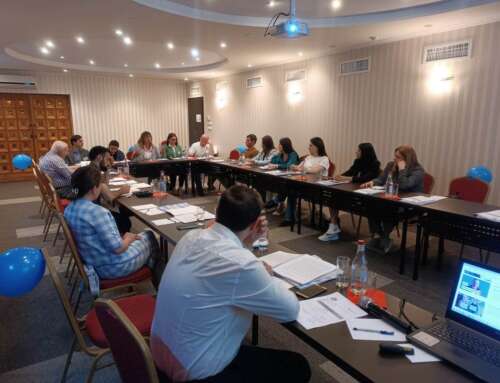Manuk Avetisyan is accused of the fact that according to the decision of the Government of the Republic of Armenia No. 1586-N dated September 27, 2020, he was part of the reserve declared in accordance with the martial law in the Republic of Armenia, he was called up on November 25, 2020 to appear at the military unit, but without a valid reason (for more than three days, from 09.00am on 11.25.20 until 4:30pm 12.02.20) he did not appear at the military unit.
According to part 7 of Article 361 of the RA Criminal Code, failure to appear for more than three days without good reason during martial law is punishable by imprisonment for a term of three to eight years.
On July 22, 2021, the court of general jurisdiction of the Shirak region of the Republic of Armenia made a decision on the appointment of a trial. In relation to the accused, as a measure of restraint he is prevented to leave the city of residence.
After the decision, two court sessions were scheduled (including the court session on 11/23/2021), the first of which did not take place due to the fact that the presiding judge was taking a course at the Academy of Justice.
On November 23, 2021, at 3:00 pm, the next court session supposed to take place. However, at the appointed time of the court session, the judge considering the case, Narek Beglaryan, left the court building. ISHR observer received an explanation from the court staff about the reason for not holding the hearing. It turned out that the hearing did not take place due to the absence of the parties and will probably be postponed. Judging by the actions of the court bailiffs, who did not know that the hearing would not take place, the parties did not inform in advance of their failure to appear. These circumstances make it possible to characterize the behavior of the judge. As a result of a comprehensive analysis of chapters 41 and 42 of the RA Criminal Procedure Code, it is obvious that:
The presiding judge at the time appointed for the consideration of the criminal case opens the court session and announces which case is subject to consideration.
The secretary of the court session reports to the court on the appearance of the parties, as well as of witnesses, experts, specialists, an interpreter, and on the reasons for the absence of the absent persons.
The failure of the defendant, his defense attorney, and the prosecutor to appear at the hearing is the basis for postponing the proceedings. If the victim fails to appear, the court, after hearing the opinions of the parties, decides on the possibility of a full, comprehensive, objective study of the circumstances of the case and the decision of a lawful and reasonable sentence in his absence.
If it is impossible to consider the case due to the failure of any of the summoned persons to appear at the court session, the court shall postpone the proceedings and take steps to ensure the presence of those who did not appear. In this case, the court sets a time limit for postponing the proceedings.
According to Article 69 of the RA Constitutional Law “The Judicial Code”, in carrying out any activity, a judge is obliged under any circumstances to refrain from discrediting the judiciary.
In the context of the aforementioned legal norms, it can be argued that by leaving the court building and not opening the court session, the judge did not fulfill the criminal procedural duties of the presiding judge (which do not cease to operate due to the absence of the parties in the court). Thus, calling into question the authority of the “judge” and the “court”.
Moreover, the current situation, in the event of its further development in a negative direction, may lead to violations associated with the observance of the principle of reasonable terms of proceedings. Article 6 of the European Convention for the Protection of Human Rights and Fundamental Freedoms states that everyone (….), upon being charged with any criminal charge, has the right to a fair and public hearing within a reasonable time by an independent and impartial tribunal established by law.
Referring to the position of the European Court of Human Rights, the Council of Presidents of the Courts, in its decision No. 98 of 13 July 2006, notes: ˝The purpose of a trial within a reasonable time is to protect all participants in the trial from unnecessary delays that could undermine the effectiveness of justice and confidence in the latter. The essence of a “reasonable time” presupposes the issuance of a judicial act within a reasonable time, which eliminates the uncertainty in which this or that person is in connection (….) with the criminal charges brought against him.
It is worth noting that with regard to a reasonable time limit for criminal proceedings, the ECtHR has established certain principles that are the basis for determining the beginning of the calculation of this time limit. In the case of “Eckle v. Germany”, (judgment of July 15, 1982, § 73), the Court summarized the following approaches to this issue: “In a criminal case, a” reasonable time “begins to be calculated from the moment the charge is brought. This may happen before the case goes to court. This period can be calculated from the moment the person is detained, or from the moment the person is officially informed about the initiation of a criminal case against him, or from the moment the preliminary investigation begins.
According to the position of the Council of Presidents of Courts, the precedents presented by the European Court confirm that only objective reasons are taken into account when assessing the fact of violation of the requirement for a reasonable time for consideration of the case. The workload of the courts, the inexperience of judges, the imperfection of the judicial system or the legal system as a whole, as well as the behavior of the participants in the case cannot be considered an objective reason for the delay in the consideration of the case.
The above grounds allow us to draw the following conclusions: the court should have opened the court session, thereby guaranteeing the criminal procedural rights of all participants in the trial (which would meet the expectations of the participants in the trial in connection with the consideration of the case within a reasonable time) and, after the start of the session, make a decision regarding the fact of failure of the parties to appear.
Information about the time of the next court session has not yet been published in the judicial information system.








Leave A Comment